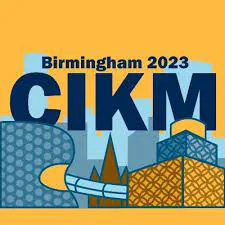Selecting Top-k Data Science Models by Example Dataset
Oct 1, 2023·,, ,,,,·
0 min read
,,,,·
0 min read
Mengying Wang
Sheng Guan
Hanchao Ma
Yiyang Bian
Haolai Che
Abhishek Daundkar
Alp Sehirlioglu
Yinghui Wu

Abstract
Data analytical pipelines routinely involve various domain-specific data science models. Such models require expensive manual or training effort and often incur expensive validation costs (e.g., via scientific simulation analysis). Meanwhile, high-value models remain to be ad-hocly created, isolated, and underutilized for a broad community. Searching and accessing proper models for data analysis pipelines is desirable yet challenging for users without domain knowledge. This paper introduces ModsNet, a novel MODel SelectioN framework that only requires an Example daTaset. (1) We investigate the following problem, Given a library of pre-trained models, a limited amount of historical observations of their performance, and an “example” dataset as a query, return k models that are expected to perform the best over the query dataset. (2) We formulate a regression problem and introduce a knowledge-enhanced framework using a model-data interaction graph. Unlike traditional methods, (1) ModsNet uses a dynamic, cost-bounded “probe-and-select” strategy to incrementally identify promising pre-trained models in a strict cold-start scenario (when a new dataset without any interaction with existing models is given). (2) To reduce the learning cost, we develop a clustering-based sparsification strategy to prune unpromising models and their interactions. (3) We showcase of ModsNet built on top of a crowdsourced materials knowledge base platform. Our experiments verified its effectiveness, efficiency, and applications over real-world analytical pipelines.
Type
Publication
In The Conference on Information and Knowledge Management